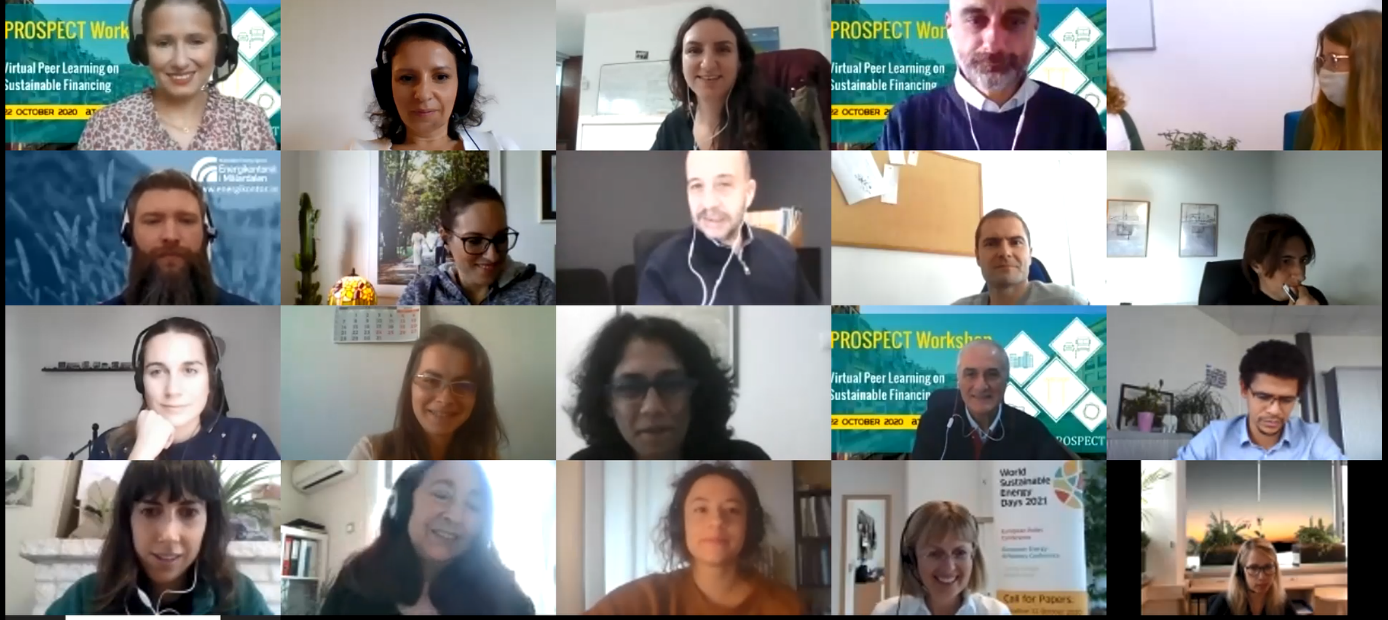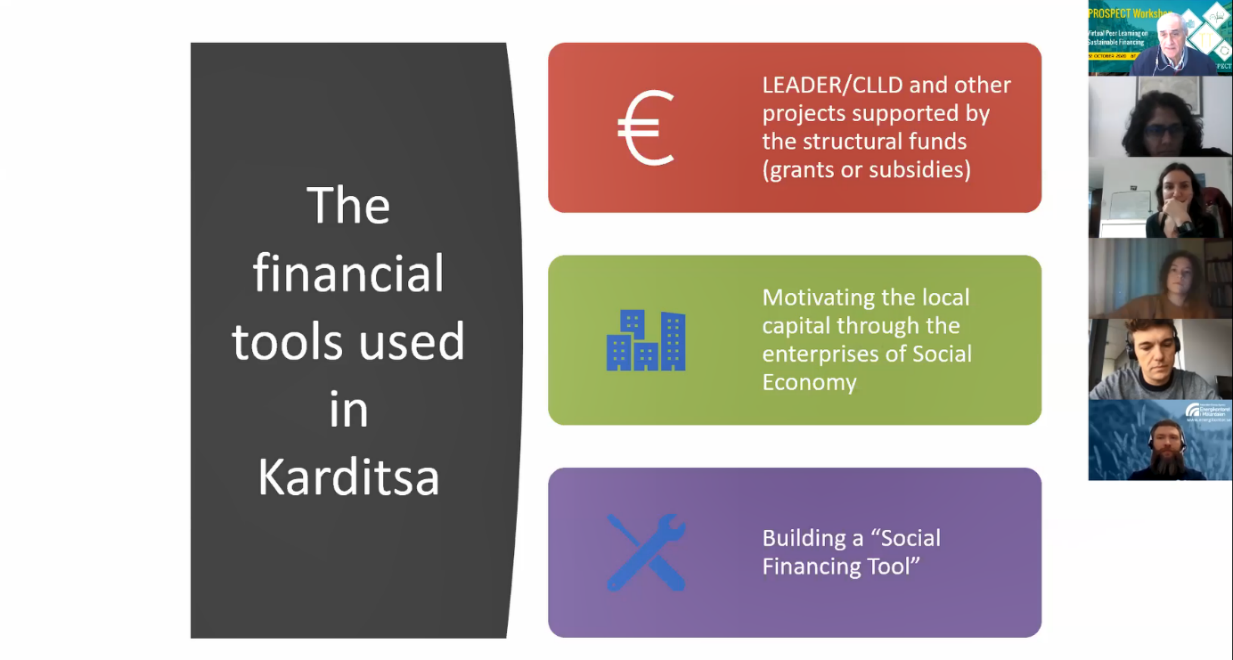On the 22nd of October 2020, the PROSPECT workshop “Peer Learning on Sustainable Financing” took place online.
The goal was to bring together representatives of local and regional authorities and energy agencies from across Europe to exchange and learn about innovative mechanisms for sustainable energy and climate projects. To do this, some of the most experienced PROSPECT mentors were invited to share their tips and tricks with the audience.
The crowd was composed of previous mentees from the four PROSPECT learning cycles, but also many people who heard about PROSPECT but did not get the chance to join the programme yet.
The workshop started with a tour de table of participants and a presentation of the project by coordinator Mia Dragović Matosović (IEECP), who revealed some of the insights and results of PROSPECT. Participants were then asked to choose one of the five breakout rooms available for two consecutive 45’ interactive sessions in small groups. The breakout rooms matched the five PROSPECT learning modules, and were hosted by five PROSPECT mentor organisations:
- Private Buildings: Ina Karova (EAP Plovdiv, BG) who presented the long-lasting experience of the Energy Agency of Plovdiv on smart finance for smart buildings and solutions for energy poverty;
- Public Buildings: Silvio De Nigris (Piemonte Region, IT) who presented some bundled EPC projects implemented in the Italian Piemonte Region through the Interreg Mediterranean project STEPPING – Supporting the EPC Public Procurement IN Going – beyond;
- Public Lighting: Anja Gahleitner and Christiane Egger (OÖ Energiesparverband, AT) whose agency has supported more than 200 contracting projects related to energy efficiency and investments in renewable energy technologies through the regional EPC programme;
- Transport: Angela Rivada Rodriguez and Jesus Gomez Perez (Municipality of Valladolid, ES) who have been involved in numerous H2020 projects related to sustainable mobility and transport. These have had several positive effects on the municipality: opening up new pedestrian spaces; enhancing bicycle lanes, creating new and better-connected lanes; improving infrastructure for transport and; avoiding traffic through the city centre;
- Cross-Sectoral: Vasileios Bellis (Development Agency of Karditsa, GR) who shared his experience in establishing the Energy Cooperative of Karditsa (ESEK), which was the first collective effort at country level for exploiting forest and agro-biomass. He also explained how he developed a Guarantee Financial tool in Greece.
Mentors presented some of their best practice examples in relation to the topics, then exchanged with participants. They also addressed some of the challenges they encountered, and gave some guidance to avoid going through some difficulties they experienced themselves.
The workshop ended with a plenary session to summarise the main discussion points and conclusions that were raised in small groups. All mentors and several participants expressed their satisfaction regarding the workshop. Indeed, despite the digital format, participants had plenty of time to network and ask questions. In total, 36 people participated in the workshop, including 6 mentors, 6 project partners/facilitators and 24 regular participants (around 5 per breakout group).
“Start easy, start small but start!” was the key message echoed from the City of Valladolid, Spain. This was certainly also one of the main conclusions from the event, backed by most mentors and facilitators. The key lesson here is that municipalities and energy agencies might not directly be able to bundle projects and use complex financing mechanisms for their sustainable energy plans, but what matters is to launch the process and not be afraid of starting something new.



